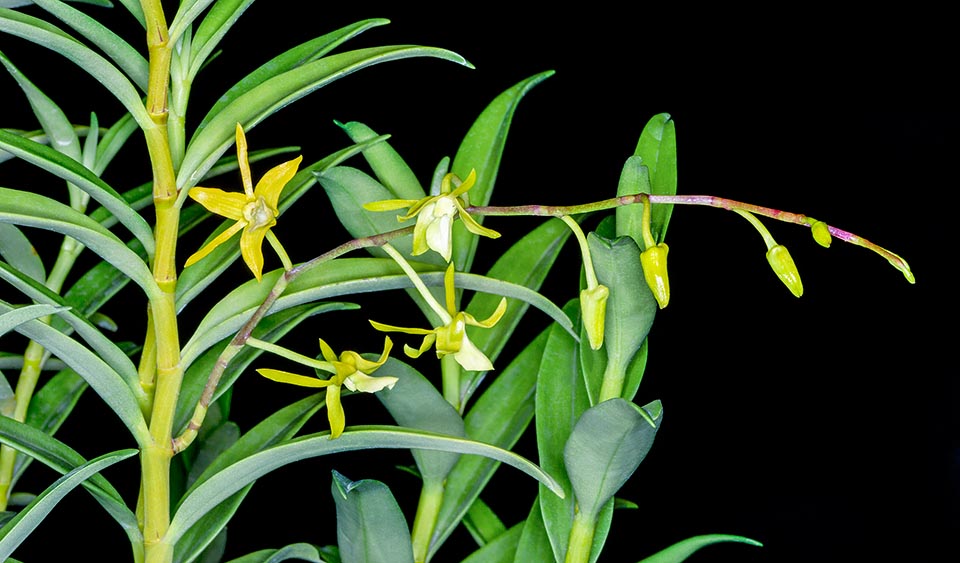Family : Orchidaceae

Text © Pietro Puccio

English translation by Mario Beltramini

Dendrobium militare is an epiphyte of the humid Ternate forests, in the Moluccas, with creeping rhizome and thin cylindrical pseudobulbs, 20-45 cm long © G. Mazza
The name of the genus is the combination of the Greek substantives “δένδρον” (dendron) = tree and “βίος” (bios) = life, with reference to the numerous species of the genus living on the trees; the specific name is the Latin term “militaris, e” = military.
The Dendrobium militare P.J.Cribb (1996) is an epiphytic plant with creeping rhizome and thin cylindrical pseudobulbs, 20-45 cm long and of about 0,5 cm of diameter, provided of alternate leaves, distichous, lanceolate with bilobed apex, coriaceous, of pale green colour. Inflorescences from the upper nodes, 10-14 cm long, with 4-10 flowers of about 3 cm of diameter of pale greenish yellow colour.

Species almost unknown in cultivation, has inflorescences reaching the 14 cm, with 4-10 flowers of about 3 cm of diameter © Giuseppe Mazza
The species is reported in the appendix II of the CITES (species whose trade is internationally ruled).
Synonyms: Dendrobium brevimentum P.J.Cribb (1986); Ceratobium brevimentum M.A.Clem. & D.L.Jones (2002).
→ For general notions about ORCHIDACEAE please click here.
